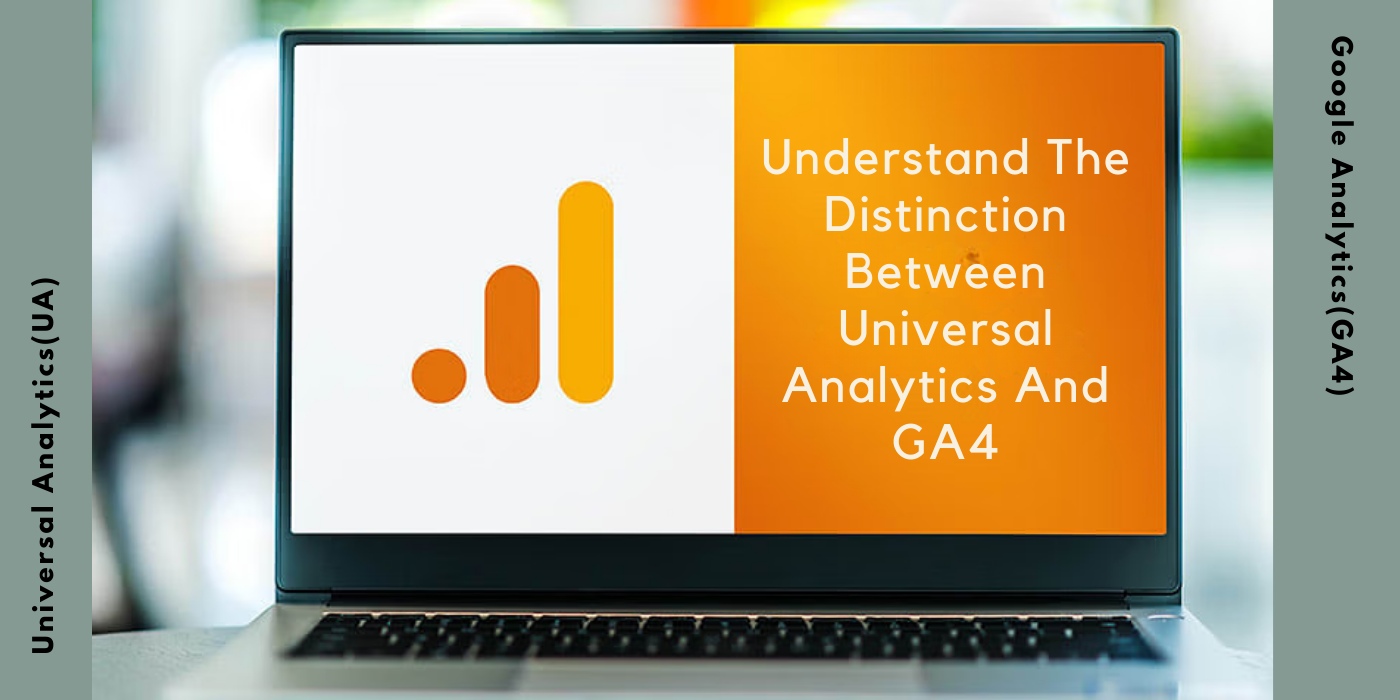In the realm of digital marketing, the optimal utilization of data stands as the cornerstone for achieving success. Harnessing the capabilities of digital analytics, notably Universal Analytics, empowers businesses to scrutinize performance, pinpoint opportunities for enhancement, and acquire invaluable insights into their customer journey. Nevertheless, Universal Analytics has undergone a transition, paving the path for Google Analytics 4 (GA4) to emerge as the foremost tool for processing data and tracking website activity. This evolution signifies a pivotal shift in the digital landscape, ensuring that businesses align with the latest advancements to maintain their competitive edge. For those seeking guidance in navigating this dynamic digital terrain, partnering with the best digital marketing agency becomes imperative to leverage expertise and stay ahead of the curve.
This post will examine the distinctions between GA4 and Universal Analytics as well as the rationale behind the switch. We will also delve into the special features and benefits of GA4, including its new measurements, integration with Google Ads, personalized dashboards, and enhanced tracking for websites and mobile apps.
Google Analytics 4 – Overview
Driven by a number of causes, including shifting customer behavior and online privacy rules, Universal Analytics has been supplanted by Google Analytics 4 (GA4) as the industry leader in digital analytics.
With the integration of AI-driven predictive analytics, machine learning capabilities, sophisticated data visualization tools, and a focus on customer privacy, GA4 sets the stage for sophisticated and privacy-conscious analytical practices. GA4 represents a significant leap towards a more advanced and refined analytics tool that addresses the challenges of the modern digital landscape.
What Makes GA4 Distinct From Universal Analytics?
New Measurements
When discussing the monitoring of user engagements on mobile applications and websites, a key differentiation between GA4 and Universal Analytics arises. GA4 primarily concentrates on page views, yet it often lacks thorough data collection for other vital interactions such as video watches, clicks, and more. Incorporating SEO services into the mix enhances the visibility and optimization of these interactions, providing a holistic approach to tracking user engagement.
GA4 introduces a paradigm shift where every interaction is categorized as an event. This allows for a more versatile and in-depth analysis of user behavior. Unlike Universal Analytics, these events are tracked independently of sessions, giving businesses the ability to activate or deactivate them as needed.
Integrated With Google Ads
GA4 offers the ability to integrate both apps and websites simultaneously, which was not possible with Universal Analytics. This integration allows businesses to monitor conversions across diverse platforms, including Google Ads, social media channels, and email. By providing a holistic overview of performance across multiple channels, GA4 revolutionizes data collection and analysis.
Personalized Dashboards
In contrast to Universal Analytics, GA4 provides dashboard customization options. While report pages in Universal Analytics are not customizable, users can still rearrange data cards to their liking by clicking the “customize report” button. This convenience enables businesses to design customized dashboards that correspond with their unique requirements and priorities.
Tracking Mobile Apps & Websites
With GA4, the integration of all aspects is streamlined into a single platform, enabling businesses to effortlessly track data from both mobile apps and traditional websites. This unified approach provides a comprehensive grasp of customer navigation, offering valuable insights into user interactions with their digital properties. In contrast, with Universal Analytics, businesses had to create a distinct property for each aspect. However, with GA4, this entire process is consolidated into one platform, markedly simplifying the analytics system. This is especially beneficial for businesses offering website development services as it enhances the efficiency and coherence of data tracking across various digital channels.
Benefits of Transitioning to GA4
Transitioning from Universal Analytics to GA4 may initially seem like a daunting task, as it involves substantial changes and the mastery of new features. However, embracing GA4 offers several benefits that make the transition worthwhile.
- Future-Proof Analytics: GA4’s state-of-the-art solutions, such as AI-driven predictive analytics and machine learning, help companies stay ahead of the curve in the rapidly evolving digital ecosystem.
- Enhanced Data Collection: With GA4, businesses can collect more comprehensive data on user interactions, including video watches, clicks, and other vital metrics. This provides a deeper understanding of user behavior and enables targeted optimizations.
- Improved Cross-Platform Tracking: The integration of Google Ads and other platforms in GA4 allows businesses to monitor and analyze performance across multiple channels. This holistic approach provides valuable insights for optimizing marketing campaigns and improving overall business outcomes.
- Customizable Dashboards: GA4’s personalized dashboards offer more flexibility and control, allowing businesses to arrange and present data in a way that aligns with their specific needs and objectives.
- Simplified Tracking: GA4 simplifies the process of tracking mobile apps and websites by consolidating everything into one platform. As a result, distinct attributes are no longer necessary, and user behavior is better understood overall.
Google Analytics 4 (GA4) is now the main tool for processing data and monitoring website activity, replacing Universal Analytics. GA4’s advanced features, such as new measurements, Google Ads integration, personalized dashboards, and enhanced tracking capabilities, give businesses a more advanced and privacy-aware approach to digital analytics.
The advantages of embracing GA4 outweigh the initial challenges associated with transitioning from Universal Analytics. By incorporating GA4, web agencies can future-proof their analytics practices, acquire more profound insights into user behavior, and enhance their marketing endeavors across various platforms. Harness the power of GA4 and elevate your digital analytics to a new level, empowering your web agency with advanced capabilities.





